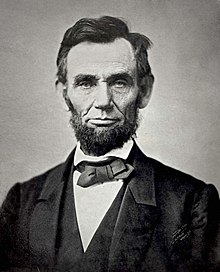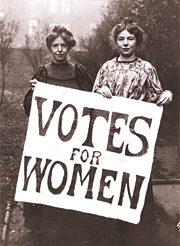
In 1851, Sojourner Truth gave a speech at the Women's Convention in Akron, Ohio, concerning the topic of racism and sexism and the prejudices associated with the two. She begins by stating that with all the movements of abolition and women's rights, that the white men are bound to become nervous soon. Then, she says that she saw a woman being helped into a carriage and that she does not get the same treatment because she is black. She realizes that women are being treated as inferior in this case as well, but asks the question "Ain't I a Woman?" implying that she is at a double disadvantage because of her race. Then she puts in some humor and says that even though Christ was a man, he was created by a woman. Furthermore, she stated that the first woman God made was powerful enough to turn the world upside down. After that, Truth did not have "nothing more to say."





